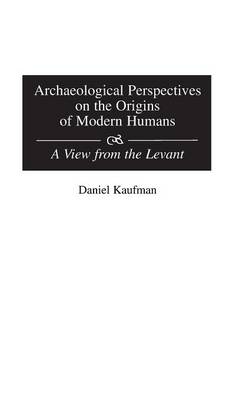Most of the literature dealing with the origins of modern humans concentrates on the European sequence, where the Levant is referred to in passing as being problematic because it does not fit with the sequence of events documented in Europe. This is the first book that attempts to examine the issues specifically from the Levant, viewing it as central rather than peripheral to the problem. It also discusses in some depth the ramifications of possible interactions between the different hominids in the region.
Rather than viewing the transition from the Middle to Upper Paleolithic as the time at which fully modern adaptive systems came to the forefront, emphasis is placed on the Middle Paleolithic itself in order to test hypotheses that hominids of this period were culturally archaic. Through an analysis of the archaeological evidence, it is concluded that by at least 100,000 years ago people of the period, usually regarded as being somewhat less than human were, on the contrary, fully modern in terms of their behavioral and cultural systems. This conclusion applies to both the Neanderthals and their anatomically modern contemporaries. The author further concludes that the cultural and behavioral differences between the two types were minimal and that there was a potential for interaction and acculturation between them. The possibility is raised that the Near East is the region in which modern human cultural adaptation arose and then dispersed to other regions.
- ISBN10 0897895789
- ISBN13 9780897895781
- Publish Date 30 April 1999
- Publish Status Active
- Publish Country US
- Publisher ABC-CLIO
- Imprint Praeger Publishers Inc
- Format Hardcover
- Pages 152
- Language English
